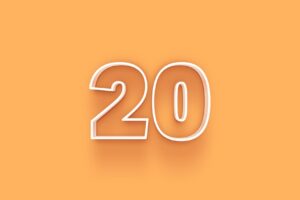What do you think when you think of Marvel? Audi? Uniqlo?
If it’s anything positive, there’s a good chance you didn’t come up with it on your own. Companies spend millions of dollars and years worth of effort to plan and execute on their positioning—how they want you as a consumer to think and feel about their brand.
For most companies, figuring out positioning is an exercise in market research, evaluating the competition, translating company values, and monitoring that.
But where does that leave us freelancers? Does it even matter?
Yes. It does.
Positioning is a very different exercise for us, but it matters just as much for us as it does the Fortune 500 company. Most of us default to something around price, or maybe even service, but we can be a lot more targeted than that.
Here’s what I mean.
Personally, I’ve tested a few different ways of positioning myself as freelancer:
- An expert in case studies: I saw another very successful freelancer use this and put a twist on it in my field.
- A passionate writer who’s dedicated to a niche: “Passion” is something people like to see in someone’s work, so leading with that looked like a good idea..
- An industry insider who pivoted to content creation: This was my authentic story and a straightforward way of describing who I am.
Can you guess which one I landed on? It’s that last one.

I tested all three options while offering basically the same services to basically the same group of customers—but the insider slant comes up repeatedly, unprompted, when discussing why a prospect is interested in working with me. I think it’s because my industry (healthcare) is very insular…experienced people want someone who’s a native speaker, and new entrants love the support of someone who knows the terrain better than they do.
How to get started on your freelance positioning
Freelancers have a lot of options when positioning ourselves. Too many. That’s why,
(beyond focusing on a niche where you already have some inertia, i.e. employment experience), I encourage people to listen first when starting on their positioning journey. This means…
- Reading job postings (employed and freelance)
- Paying attention to trade publications in your niche
- Listening to people when you’re having sales conversations
You can do a lot of refining of your freelance positioning in terms of things like price, service, quality, etc. but that’s more useful in markets where customers have multiple options. As freelancers, we generally do better staying away from those situations and finding the spaces where we’re the best option simply because of the value and efficiency we offer.
@freelancemba Positioning for Freelancers…What is it and how doyou take advantage? #freelancer #freelancetiktok#sidehustle #smallbusiness 8 ♬ original sound – freelancemba



